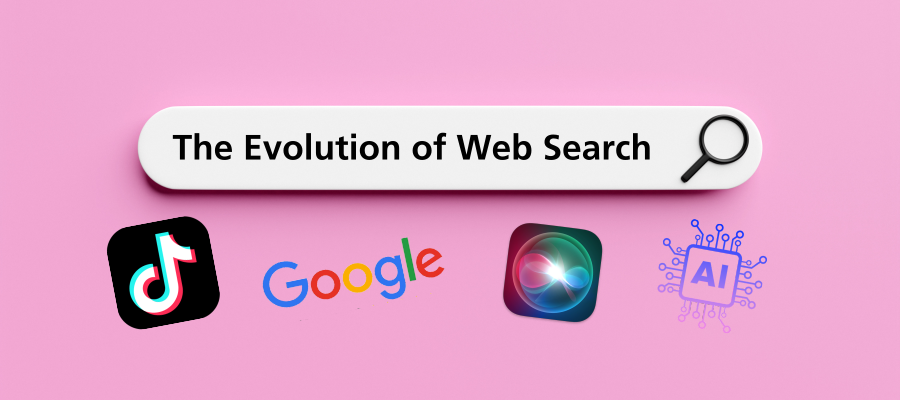Over the last few decades, the landscape of the internet has evolved dramatically, and with it, the way people search the web has undergone many changes. The rapid advancements in technology, coupled with shifts in user behaviours and expectations, have led to an evolution in the world of online search. From simple keyword searches to voice commands and AI-driven predictions, this blog explores the changing trends in how people now search the web.
A look back to keywords:
In the early days of web search, search engines like Google and Bing relied on typing in relevant keywords to retrieve relevant websites for the user. Individuals would enter specific terms into search boxes, and algorithms would match these keywords to web pages containing the same or similar terms. While this method was revolutionary at the time, it often produced inconsistent and sometimes irrelevant results. Users had to refine their queries repeatedly to find accurate information, and discovering niche or complex topics was a challenge.
The rise of conversational search:
As technology progressed, so did the capability of search engines. Natural conversational search terms started to gain traction. Users began to search queries in a more conversational manner, expecting search engines to understand the context and intent behind their words. Search engines, in turn, began to focus on providing results that not only matched long-tail keywords but also comprehended the user's query as a whole.
Voice Search:
The beginning of voice assistants like Siri, and Amazon Alexa brought about a huge shift in how people search the web. Voice search enables users to interact with technology in a more human-like way, prompting them to use complete sentences and natural language. This change has led to an increased demand for conversational content that mirrors how people speak.
Localised Searches:
The popularity of smartphones has also influenced the way people search. With the ability to search on-the-go, users often seek information tailored to their current location. Localised searches, such as "best coffee shops near me" or "events this weekend," have become normal. This trend has compelled businesses to optimise their online presence for local search, emphasising the importance of accurate location data and user reviews.
Visual and Image Search:
With the rise of social media platforms like Instagram, and TikTok, visual content has taken centre stage. Consequently, visual and image search functionalities have emerged as novel ways for users to find information. By uploading images or entering detailed descriptions, users can now search for similar visuals, products, or even places. This development has significant implications for e-commerce and product discovery.
Artificial Intelligence:
Artificial Intelligence (AI) has been focal in shaping the ever-changing world of web search. AI-powered algorithms can now understand context, sentiment, and user intent with remarkable accuracy. This has given rise to virtual assistants and chatbots that can engage in dynamic conversations with users, offering assistance and refining search queries in real-time.
The way people search the web has come a long way from the early days of simple keyword queries and looks to continue its journey of innovation. As technology continues to advance, the focus will undoubtedly remain on making the search experience more intuitive, efficient, and tailored to the diverse needs of users.


